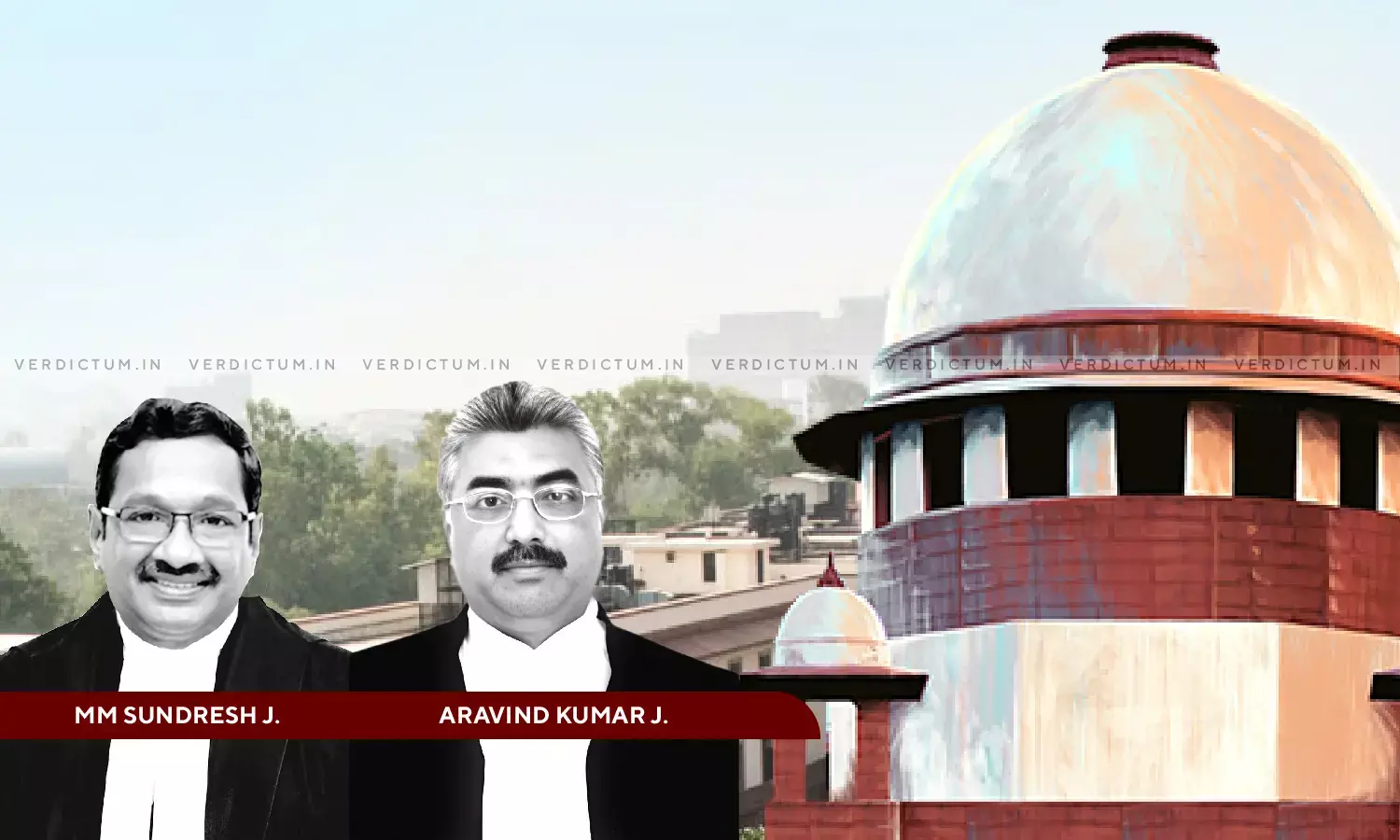When Accused Is Injured Investigating Officer Must Rule Out Possibility Of Offence U/s. 304 Part 1 Before Charging Section 302 IPC: Supreme Court
The Supreme Court, while modifying the order of conviction to Section 304 Part 1 of the Indian Penal Code instead of Section 302 IPC, has observed that whenever a homicide takes place, the investigating officer is expected to conduct a fair investigation and it is the duty of the Investigating Officer to conduct an investigation on the same before giving his opinion/final report.
The Court held that when the accused is injured, the Investigating Officer is to rule out the possibility of an offence attracting punishment under Section 304 Part 1 IPC, before charging the accused under Section 302 IPC.
The Bench of Justice MM Sundresh and Justice Aravind Kumar observed, “Whenever a homicide takes place, an Investigating Officer is expected to conduct a fair investigation. When the accused suffers injuries, it is the duty of the Investigating Officer to conduct investigation on the same before giving his opinion. A final report filed by the Investigating Officer is only an opinion. Admittedly, there is a homicide. In that eventuality, what is expected of the Investigating Officer is to rule out the possibility of an offence attracting punishment under Section 304 Part 1 IPC, before charging the accused under Section 302 IPC. Unfortunately, the said exercise has not been done, especially, when the appellant has sustained substantial injuries warranting immediate treatment. We are dealing with a case of circumstantial evidence. Therefore, all the more reason, the aforesaid procedure ought to have been adopted.”
Senior Advocate A Sirajudeen appeared for the Appellant whereas AOR Devina Sehgal appeared for the Respondent.
The Appellant was charged and convicted for the offence punishable under Section 302 of the Indian Penal Code, 1860 (‘IPC’). The case of the prosecution was that the appellant came to the place of residence of the deceased who was living there along with PW-1 and took him outside. Thereafter, the deceased returned and PW-1 and PW-2 found him in a very serious condition. The deceased suffered multiple stab injuries. PW-2 thereafter called the ambulance and in the hospital, the deceased was given treatment. However, he succumbed to his injuries in the hospital. The Trial Court rendered a conviction and then an appeal was filed by the Appellant which was also dismissed.
The counsel for the Appellant submitted that the onus was wrongly fixed on the appellant by placing reliance upon Section 106 of the Indian Evidence Act, 1872 (‘IE Act, 1872’. He said it was very unfortunate that the lawyer who conducted the trial on behalf of the appellant did not even ask basic questions. Bloodstain was not available, despite the fact that the appellant was stabbed continuously and the knife recovered under Section 27 of the IE Act did not indicate any bloodstain, notwithstanding the statement made by the Investigating Officer. Neither the doctor who examined the deceased was shown as a witness nor the ambulance driver. The motive has not been proved and the photographs, though taken, have not been marked, he submitted.
The Court said, “The question for consideration is as to whether the case would come under a culpable homicide amounting to murder or otherwise…PW-6, namely, the Investigating Officer has deposed that the appellant did suffer injuries and he was given treatment in the hospital. Unfortunately, no investigation was then done with respect to the nature of injuries suffered by him and circumstances under which they occurred. The injuries suffered were also not marked nor the doctor was examined who gave the treatment to the appellant.”
Accordingly, the Apex Court modified the conviction to the one punishable under Section 304 Part 1 IPC, instead of 302 IPC and released the Appellant.
Cause Title: Amos Thamong v. The State of Telangana
Appearances:
Appellant: Senior Advocate A Sirajudeen with AOR Manjeet Chawla, Advocates Abid Ali and Manek Sharma.
suRespondent: AOR Devina Sehgal and Advocate S Uday Bhanu.












